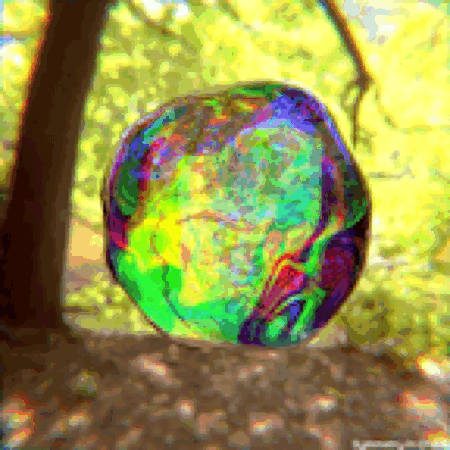cas/definition.php (people or term)

The Virtual
This term is used by relational/assemblage philosophers to speak about the 'space of possibilities'.
'The Virtual' is a term used by Deleuze and Guattari that parallels the idea of Phase Space. The Virtual alludes to aspects of reality that may or may not manifest, depending on how a system comes to be activated.
An example of 'The Virtual' would be the shape of a soap bubble. The shape of the soap bubble exists as a potential form whether or not it is 'activated' by the interaction of air blowing into a soap solution. In this way, we can think of things as having a virtual 'realness' even prior to them being actualized.
The Virtual is one of many terms introduced by philosophers Gilles Deleuze and Felix Guattari to describe a philosophy that focuses on an 'ontology of becoming'. Here, the world as it exists is Worth mentioning here other terms used by Deleuze/Guattari: 'plane of consistency'; 'body without organs'; 'machinic phylum' (as described by Delanda).
The notion of the virtual is discussed in the video below, as part of Dr Sharon Wohl's course on complex adaptive systems:
Cite this page:
Wohl, S. (2022, 13 June). The Virtual. Retrieved from https://kapalicarsi.wittmeyer.io/definition/the-virtual
The Virtual was updated June 13th, 2022.
Nothing over here yet
Navigating Complexity © 2015-2025 Sharon Wohl, all rights reserved. Developed by Sean Wittmeyer
Sign In (SSO) | Sign In
Related (this page): Assemblage Geography (20), Manuel de Landa (129), Degrees of Freedom (78),
Section: terms
Non-Linearity Related (same section): Related (all): Urban Modeling (11, fields), Resilient Urbanism (14, fields), Relational Geography (19, fields), Landscape Urbanism (15, fields), Evolutionary Geography (12, fields), Communicative Planning (18, fields), Assemblage Geography (20, fields), Tipping Points (218, concepts), Path Dependency (93, concepts), Far From Equilibrium (212, concepts),
Nested Orders Related (same section): Related (all): Urban Modeling (11, fields), Urban Informalities (16, fields), Resilient Urbanism (14, fields), Self-Organized Criticality (64, concepts), Scale-Free (217, concepts), Power Laws (66, concepts),
Emergence Related (same section): Related (all): Urban Modeling (11, fields), Urban Informalities (16, fields), Urban Datascapes (28, fields), Incremental Urbanism (13, fields), Evolutionary Geography (12, fields), Communicative Planning (18, fields), Assemblage Geography (20, fields), Self-Organization (214, concepts), Fitness (59, concepts), Attractor States (72, concepts),
Driving Flows Related (same section): Related (all): Urban Datascapes (28, fields), Tactical Urbanism (17, fields), Relational Geography (19, fields), Parametric Urbanism (10, fields), Landscape Urbanism (15, fields), Evolutionary Geography (12, fields), Communicative Planning (18, fields), Assemblage Geography (20, fields), Open / Dissipative (84, concepts), Networks (75, concepts), Information (73, concepts),
Bottom-up Agents Related (same section): Related (all): Urban Modeling (11, fields), Urban Informalities (16, fields), Resilient Urbanism (14, fields), Parametric Urbanism (10, fields), Incremental Urbanism (13, fields), Evolutionary Geography (12, fields), Communicative Planning (18, fields), Rules (213, concepts), Iterations (56, concepts),
Adaptive Capacity Related (same section): Related (all): Urban Modeling (11, fields), Urban Informalities (16, fields), Tactical Urbanism (17, fields), Parametric Urbanism (10, fields), Landscape Urbanism (15, fields), Incremental Urbanism (13, fields), Evolutionary Geography (12, fields), Feedback (88, concepts), Degrees of Freedom (78, concepts),
